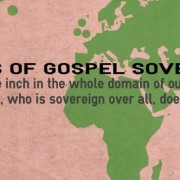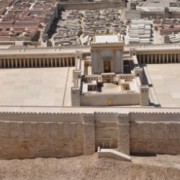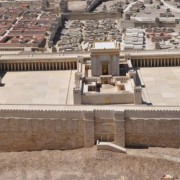In the 1993 film Rudy (named after the main character), Rudy has a conversation with a priest named Father Cavanaugh, in which the priest says,
“Son, in thirty-five years of religious study, I’ve come up with only two hard, incontrovertible facts; there is a God, and I’m not Him.” [1]
In this statement, Father Cavanaugh reveals his dependence on theology, “there is a God,” and anthropology, “and I’m not him.”
Is anthropology as important as theology for a cross-cultural missionary? This is a hot question being asked by many. Where theology is the study of God, anthropology is the study of man. There is no doubt that both are important, but are they of equal importance? To answer this question I will look at theology as the goal, and anthropology as a means to that goal.
For brevity’s sake, I will assume that my reader holds the view that God is the source of all life and God is the goal of all life. To quote the first answer of the Westminster Catechism, “Man’s chief end is to glorify God, and to enjoy him forever.”[2] Since this is why we exist, knowing God (theology) is of utmost importance, and to know him is to worship him. Herein lies the missions mandate as John Piper explains,
“Mission exists because worship doesn’t. Worship is ultimate, not mission, because God is ultimate, not man. [Mission] is a temporary necessity. But worship abides forever. Worship, therefore is the fuel and goal of missions.”[3]
God is to be known, yet the knowledge of God comes to us through anthropological means. This is exemplified in that God himself has chosen to communicate with people. “Long ago, at many times and in many ways, God spoke to our fathers by the prophets, but in these last days he has spoken to us by his Son…”(Heb 1:1-2). God chose to speak to people through people. Theos (God) spoke through anthropos (man)! The chasm between God and mankind cannot be bridged by mankind. God had men write Scripture, which has faithfully been communicated again and again to various cultures through various languages. To read the Quran, people must learn Arabic, but to read the Bible, God’s revelation, people can read it communicated within their own language.
Concerning communication, David Hesselgrave, a missiologist, draws on Aristotle’s Rhetoric identifying “three points of reference: the speaker, the speech, and the audience.”[4] He points out that a message must also be encoded and decoded (see below).[5] There can be multiple messages coming across at the same time. What the source says may not actually correspond with what the respondent hears creating misunderstanding. Several years ago, an American pastor came on a short-term ministry trip to London. While speaking with a young woman, he noticed her trousers fit his wife’s taste and commented, “I like your pants.” He communicated a message, but the message decoded by the respondent was quite different. I quickly interjected in the conversation to clarify that pants for Americans means trousers. In this case, the misinterpretation is within a common language. Yet cross-cultural ministry must often times cross significant linguistic and cultural hurdles.

In Hebrews 1, we are told that God communicated to mankind about himself through mankind. The means God uses to communicate, relates to the people to whom he is communicating. Nowhere is this more apparent than God, the Word, becoming man (Joh 1:1, 14). Jesus said, “I am not of this world” (Joh 8:23). Jesus as the logos, the word/message of God was communicated within a linguistic and cultural framework. As missiologist Sherwood Lingenfelter said, “God’s Son studied the language, the culture, and the lifestyles of his people for thirty years before he began his ministry.”[6] “The Son of God was sitting in the temple, listening and questioning!”[7] Jesus sets for us the model for cross-cultural ministry. He crossed from a heavenly culture to an earthly culture, communicating theologically in cultural forms and language that his hearers understood.
If God, who alone is wise, chose to reveal himself (theology) by relating truth in symbols and forms that people could understand (anthropology), all cross-cultural communicators should seek to follow the pattern God has laid out.
The challenge for the missionary is he must not only learn of God, but must learn of people. One of the greatest barriers to this is the missionary’s own culture and worldview. If he does not study the people to whom he desires to minister, the hearer can easily decode the message the missionary sent incorrectly. Culture shapes the lens through which life is evaluated; therefore, he must learn to separate his worldview (or lens) from the message that he articulates. The missionary’s worldview is something he may be used to looking through, but not something he is used to looking at. This is what Lingenfelter calls “cultural blindness”.[8] One’s own culture can be easily mistaken as a Christ-culture and the missionary may seek to convert his hearers to become like him, rather than like Christ. It is this mistake that has been made repeatedly in cross-cultural missions. Bruce Olson, recounting his work as a missionary in Columbia realized, he had access to many tribes that others could not access because he studied the people and understood how they thought. Olson attributes two causes for his success amongst the Motilone Indians. “The first is simple: The Motilones were not asked to give up their own culture and become white men… The second was the Holy Spirit.”[9]
As the missionary studies his receptor’s culture as well as his own, he can begin to separate what is biblical from what is cultural. He is then enabled to communicate theologically in a way that can be understood anthropologically. Olson learned that speaking of having faith in God meant nothing to the Motilones. However, if he communicated the idea of faith in God as “you have to tie your hammock strings into Him [Jesus] and be suspended in God,”[10] then they understood. Don Richardson went to the Sawi people of New Guinea. In his book Peace Child, he tells of attempting to tell the gospel story to the tribe. He was confounded when the whole tribe exalted Judas as a hero because he was the ultimate traitor, and in their culture befriending someone only to win their trust then stab them in the back was a prized virtue![11] As Richardson learned more about the tribe’s culture he was able to contextualize Jesus’ sacrifice in terms they could relate to. Within their culture, peace was brought between tribes by offering a son (peace child) to a member of another tribe. Richardson was able to show that Jesus was God’s peace child, and in their culture, to betray a peace child was unthinkable. Judas turned from hero to villain and many received the gospel. Richardson concludes, “The look on their faces told me I had not only discovered a parallel between their culture and the gospel, but I had also scraped a raw nerve as well-the obvious inadequacy of the Sawi peace child!”[12]
In this process there is a danger to be avoided. When anthropology trumps theology, the missionary can begin to make God’s message fit what is culturally acceptable. Even the great missionary Jesus’ message was rejected. It was rejected because people understood what Jesus was saying, not because they did not understand. The gospel is always going to confront the culture of the people to whom the missionary is sent. Jesus warns that since he was rejected, his followers would be also (Joh 15:18). Missiologist Paul Hiebert warns that the Anticolonial Era of missionaries erred in their contextualization. “Contextualization often became an uncritical process in which good in other cultures was affirmed, but the evil in them was left unchallenged…. What is sacrificed is the uniqueness of Christ and his salvation, because this is an offence to non-Christians.”[13] Darrin Patrick in his book Church Planter says contextualizing the gospel should be coupled with contending for the gospel. If theology is loosened to fit the culture, in which the missionary seeks to minister, he loses the very reason for which he is sent into that culture.[14] “Contextualization is speaking to people with their terms, not on their terms.”[15] Patrick quotes Timothy Keller on the issue,
“Contextualization is not ‘giving people what they want’ but rather it is giving God’s answers (which they may not want!) to questions they are asking and in forms that they can comprehend.”[16]
God is the message (theology), but his message is for people (anthropology). The missionary’s pursuit is to communicate theology powerfully and accurately to people. To do this he needs to understand those people. In this way, anthropology is critical, because this is the means whereby the truth of God can be understood as it is presented to every tribe, tongue, people, and ethnic group for the glory of God and their forever enjoyment of him.
[1] Dir. David Anspaugh. Perf. Sean Austin, Jon Favreau and Ned Beatty. Rudy. (Tri Star Pictures. 1993). DVD.
[2] Frame, J. M. The Collected Shorter Theological Writings. (Phillipsburg, NJ: P&R Publishing. 2007). N.P. Logos Electronic Edition
[3] Piper, John, Let the Nations Be Glad. (Grand Rapids: Baker Academic. 2003). 17
[4] Hesselgrave, David J. Communicating Christ Cross-Culturally: An Introduction to Missionary Communication. (Grand Rapids: Zondervan Publishing House. 1991). 40
[5] Hesselgrave, Communicating Christ Cross-Culturally, 41
[6] Lingenfelter, Sherwood and Marvin, Mayers K. Ministering Cross-Culturally: An Incarnational Model for Personal Relationships. (Grand Rapids: Baker Accademic, 2003). 16
[7] Lingenfelter, Ministering Cross-Culturally, 16
[8] Lingenfelter, Sherwood. Transforming Culture: A Challenge for Christian Mission. (Grand Rapids: Baker Books. 1998), 21
[9] Olson, Bruce. Bruchko. (Lake Mary, FL: Charisma House. 1995), 128-9
[10] Olson, Bruchko, 139
[11] Richardson, Don. Peace Child. (Ventura: Regal Books. 2005), 150-2
[12] Richardson, Peace Child, 187
[13] Hiebert, Paul G. Anthropological Reflections on Missiological Issues. (Grand Rapids: Baker Books. 1994), 59
[14] Patrick, Darrin. Church Planter: The Man, The Message, The Mission. (Wheaton: Crossway. 2010) 194
[15] Patrick, Church Planter, 195 emphasis mine
[16] Keller, Timothy, “Contextualization: Wisdom or Compromise?” (Connect Conference, Covenant Seminary, 2004), 2, quoted in Patrick, Church Planter, 195,








